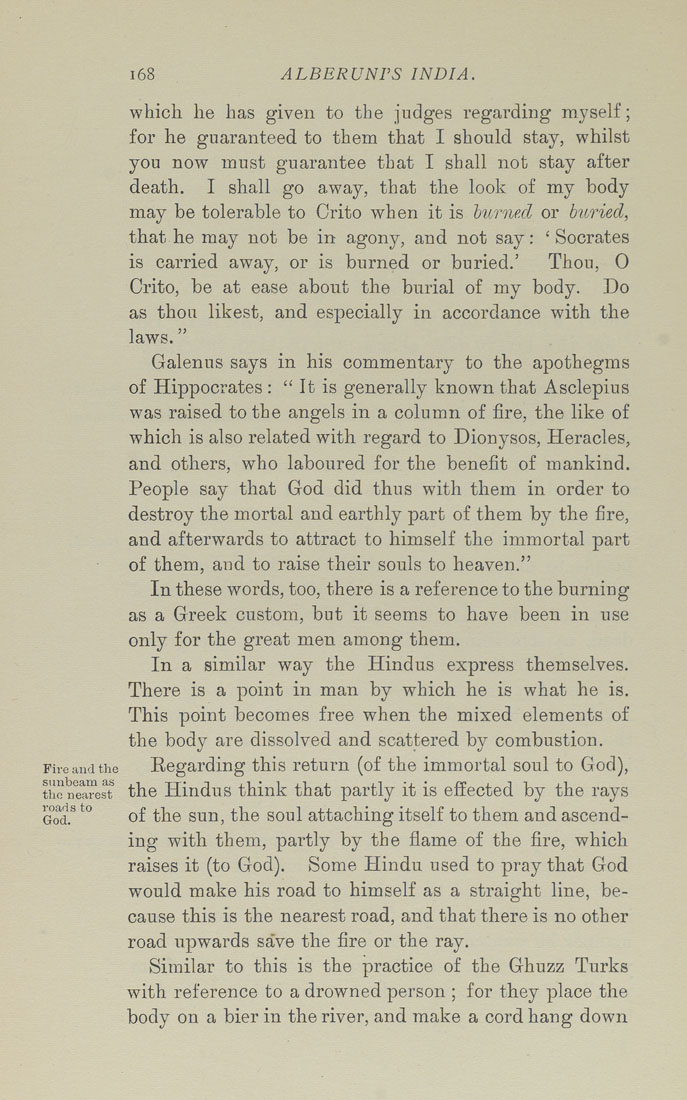168 ALBERUNTS INDIA.
which he has given to the judges regarding myself;
for he guaranteed to them that I should stay, whilst
you now must guarantee that I shall not stay after
death. I shall go away, that the look of my body
may be tolerable to Crito when it is burned or buried,
that he may not be in agony, and not say: 'Socrates
is carried away, or is burned or buried.' Thou, 0
Crito, be at ease about the burial of my body. Do
as thou likest, and especially in accordance with the
laws."
Galenus says in his commentary to the apothegms
of Hippocrates : " It is generally known that Asclepius
was raised to the angels in a column of fire, the like of
which is also related with regard to Dionysos, Heracles,
and others, who laboured for the benefit of mankind.
People say that God did thus with them in order to
destroy the mortal and earthly part of them by the fire,
and afterwards to attract to himself the immortal part
of them, and to raise their souls to heaven."
In these words, too, there is a reference to the burning
as a Greek custom, but it seems to have been in use
only for the great men among them.
In a similar way the Hindus express themselves.
There is a point in man by which he is what he is.
This point becomes free when the mixed elements of
the body are dissolved and scattered by combustion.
Fire and the Regarding tliis return (of the immortal soul to God),
thonea^eS" the Hludus think that partly it is effected by the rays
God.** *° of the sun, the soul attaching itself to them and ascend¬
ing with them, partly by the flame of the fire, which
raises it (to God). Some Hindu used to pray that God
would make his road to himself as a straight line, be¬
cause this is the nearest road, and that there is no other
road upwards save the fire or the ray.
Similar to this is the practice of the Ghuzz Turks
with reference to a drowned person ; for they place the
body on a bier in the river, and make a cord hang down
|








